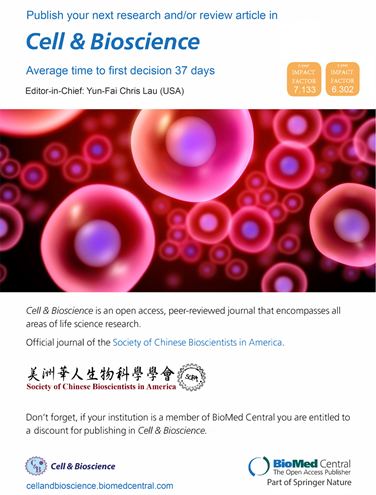内皮祖细胞衍生的细胞外囊泡:治疗心血管疾病的潜在前景世界
IF 6.1
2区 生物学
Q1 BIOCHEMISTRY & MOLECULAR BIOLOGY
引用次数: 0
摘要
心血管疾病(CVDs)已成为人类健康的主要威胁,其发病率和死亡率已超过肿瘤疾病。细胞外囊泡 (EV) 是细胞间通信和物质交换的重要媒介。内皮祖细胞(EPCs)被认为是血管内皮细胞(ECs)的前体,由于其衍生的细胞外囊泡(EPC-EVs)在心血管疾病方面具有潜在的治疗价值,因此近年来备受关注。这篇全面的综述系统地探讨了EPC的起源、特点和功能,以及EVs的分类、特性、生物生成和提取技术,特别强调了它们在心血管疾病中的保护作用。此外,我们还深入研究了EPC-EVs的重要生物活性成分,包括微RNA、长非编码RNA和蛋白质,分析了它们在促进血管生成、抗炎和抗氧化、抗纤维化、抗凋亡和心肌再生方面的有益作用。此外,这篇综述还全面研究了 EPC-EV 在各种心血管疾病中的治疗潜力,包括急性心肌梗塞、心肌缺血再灌注损伤、动脉粥样硬化、非缺血性心肌病和糖尿病心血管疾病。最后,我们总结了与EPC-EV临床应用相关的潜在挑战,并概述了未来的发展方向,旨在为EPC-EV在心血管疾病管理中的理论见解和实际应用提供有价值的资源。本文章由计算机程序翻译,如有差异,请以英文原文为准。
Endothelial progenitor cell-derived extracellular vesicles: the world of potential prospects for the treatment of cardiovascular diseases
Cardiovascular diseases (CVDs) have emerged as a predominant threat to human health, surpassing the incidence and mortality rates of neoplastic diseases. Extracellular vesicles (EVs) serve as vital mediators in intercellular communication and material exchange. Endothelial progenitor cells (EPCs), recognized as precursors of vascular endothelial cells (ECs), have garnered considerable attention in recent years due to the potential therapeutic value of their derived extracellular vesicles (EPC-EVs) in the context of CVDs. This comprehensive review systematically explores the origins, characteristics, and functions of EPCs, alongside the classification, properties, biogenesis, and extraction techniques of EVs, with particular emphasis on their protective roles in CVDs. Additionally, we delve into the essential bioactive components of EPC-EVs, including microRNAs, long non-coding RNAs, and proteins, analyzing their beneficial effects in promoting angiogenesis, anti-inflammatory and anti-oxidant activities, anti-fibrosis, anti-apoptosis, and myocardial regeneration. Furthermore, this review comprehensively investigates the therapeutic potential of EPC-EVs across various CVDs, encompassing acute myocardial infarction, myocardial ischemia–reperfusion injury, atherosclerosis, non-ischemic cardiomyopathies, and diabetic cardiovascular disease. Lastly, we summarize the potential challenges associated with the clinical application of EPC-EVs and outline future directions, aiming to offer a valuable resource for both theoretical insights and practical applications of EPC-EVs in managing CVDs.
求助全文
通过发布文献求助,成功后即可免费获取论文全文。
去求助
来源期刊

Cell and Bioscience
BIOCHEMISTRY & MOLECULAR BIOLOGY-
CiteScore
10.70
自引率
0.00%
发文量
187
审稿时长
>12 weeks
期刊介绍:
Cell and Bioscience, the official journal of the Society of Chinese Bioscientists in America, is an open access, peer-reviewed journal that encompasses all areas of life science research.
 求助内容:
求助内容: 应助结果提醒方式:
应助结果提醒方式:


